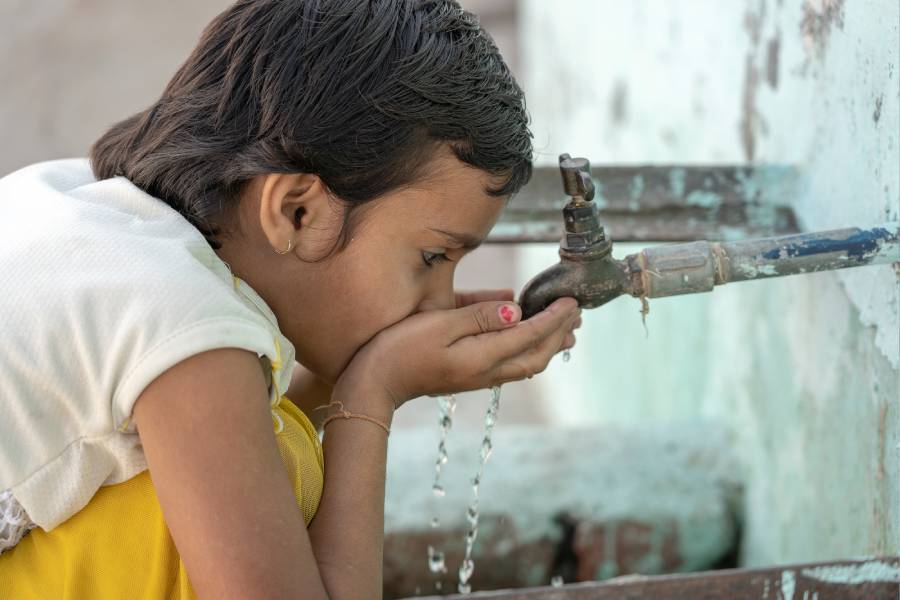Indian scientists have uncovered a hidden world teeming in the nation’s drinking water, and it's raising urgent questions about public health.
In a first-of-its-kind study, researchers from the Zoological Survey of India (ZSI), in Kolkata, and IIT Madras, have decoded the complete genetic blueprint of microbes living in municipal tap water, revealing not just harmless bacteria, but traces of genes that make superbugs resistant to life-saving antibiotics.
The landmark research, published in the Journal of Environmental Chemical Engineering, analysed water samples using cutting-edge DNA sequencing technology that can detect thousands of microscopic organisms in a single test, far beyond what traditional testing methods can spot.
While the water meets current safety standards, the study found genes such as adeF and ermR, genetic codes that help bacteria survive multiple antibiotics.
These "resistance genes" can spread between microbes, potentially creating superbugs that are harder to treat.
"Even treated water harbours diverse microbial life," explained Vikas Kumar, the study's lead scientist at ZSI.
"This is the first time we've been able to see the complete picture of what's actually living in India's public drinking water systems," he said.
The microbial makeup of tap water varies based on temperature and how it travels through distribution pipes, the researchers found.
Some bacteria are harmless or even beneficial, but others are opportunistic, even capable of causing infections in vulnerable people.
The findings couldn't come at a more critical time. Antimicrobial resistance, when bacteria evolve to defeat antibiotics, already kills over a million people globally each year. India, with its dense population and widespread antibiotic use, is particularly vulnerable.
Inderjeet Tyagi, study co-supervisor at ZSI, said the research provides crucial evidence for India's One Health Mission, which recognises that human, animal and environmental health are interconnected.
"Water is the link between all three," Dr Tyagi said. "These resistance genes can move from water to humans, from humans to animals, and back again. We need to track them before they cause clinical problems."
The study supports several government initiatives including the Jal Jeevan Mission, which aims to provide safe tap water to every household, and the National Action Plan on Antimicrobial Resistance.
Professor Karthik Raman from IIT Madras said the genomic approach could transform how India monitors water safety.
"Traditional testing only catches bacteria we already know how to grow in labs," he explained. "Metagenomics reveals everything — including emerging threats we haven't seen before. It's like an early warning system for water-borne diseases and antibiotic resistance."
The researchers stress their findings shouldn't cause panic. Current water treatment remains effective, and the presence of resistance genes doesn't mean water is unsafe to drink by today's standards.
However, they argue that as superbugs become more prevalent, India needs more sophisticated monitoring beyond the chemical and microbial tests currently mandated by the Bureau of Indian Standards.
The study establishes India's first national dataset connecting urban drinking water to global surveillance networks tracking antimicrobial resistance, giving public health officials a vital new tool to spot problems before they spread.
For a nation where clean water and antibiotic resistance are both pressing challenges, understanding what's invisible in every glass from the tap may prove essential to protecting millions.
